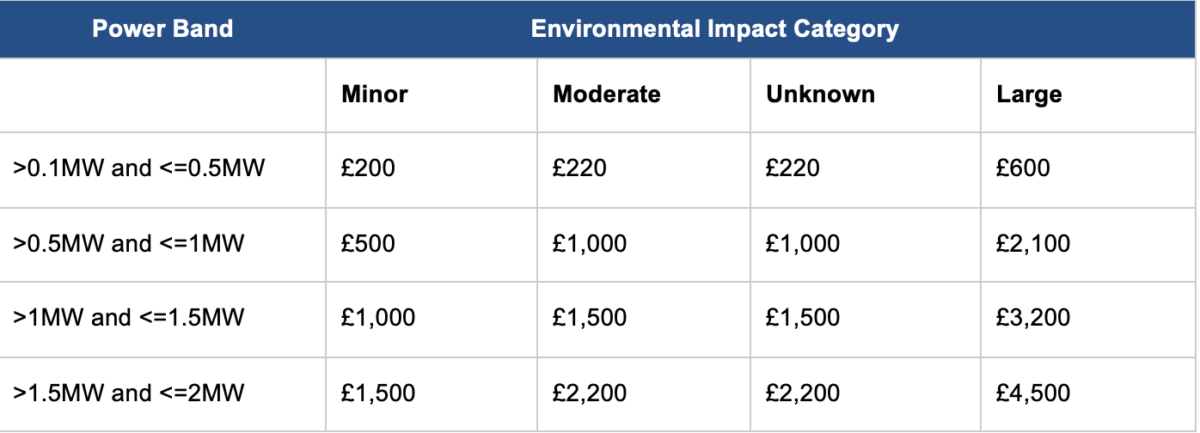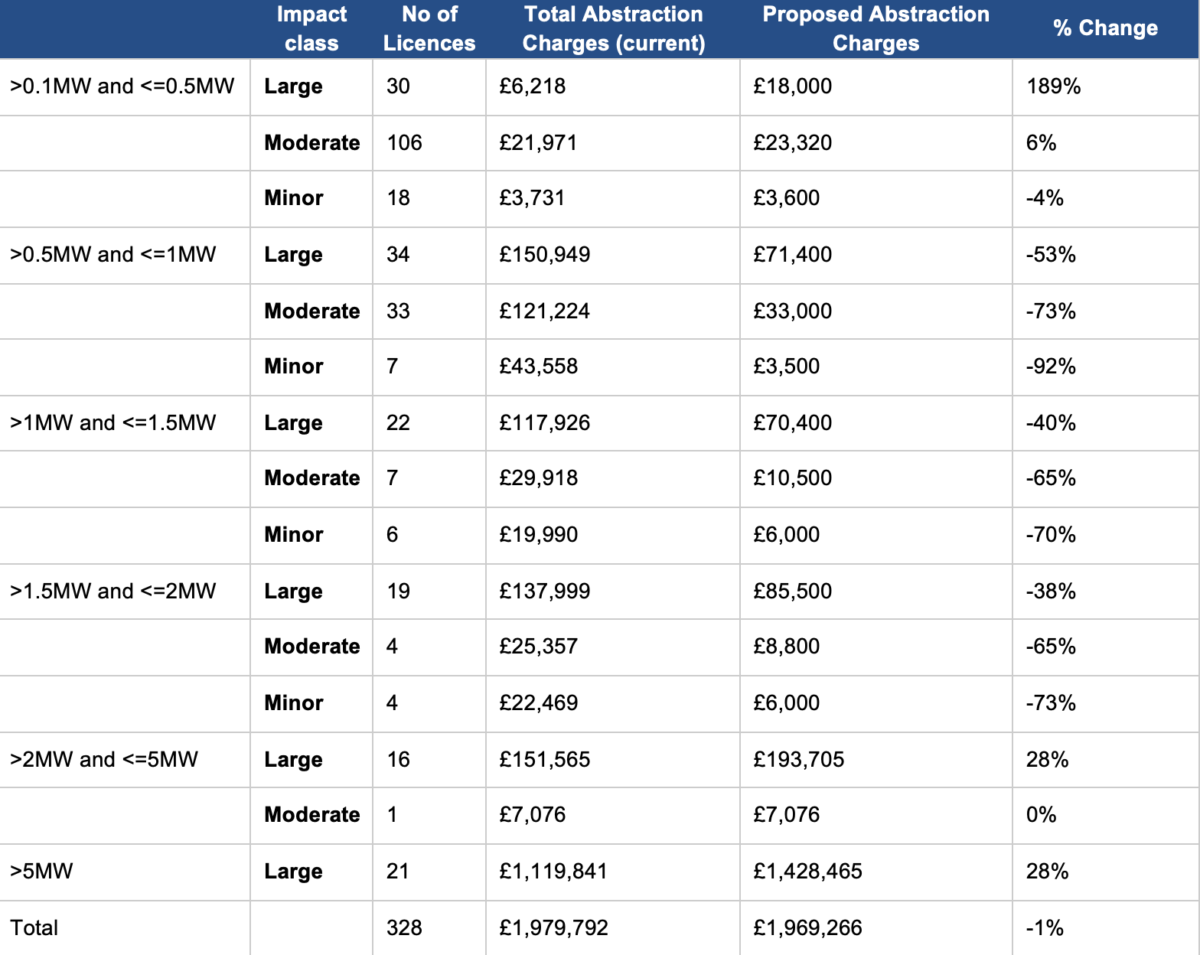The last four years of negotiations with SEPA have been a joint effort, headed up by Simon Hamlyn, CEO of the British Hydropower Association (BHA), Luke Milner of Glen Hydro and Alba Energy director John Lithgow. This has been a long and often unrewarding process, with SEPA making it difficult to gather accurate information and to correct an unsuitable charging scheme.
Latest News
Two consultations later, does it make sense?
The results of the negotiation have fallen short of its goal: to establish fair, transparent and justifiable charges. However, thanks to the persistence of the negotiating team, the charges now being proposed by SEPA represent, for most sub-2MW operators, a significant improvement from the previous scheme, are more consistent and easier to understand.
There has been a rebalancing of charges, so that some schemes of 100kW-500kW will see increases from the minor fees previously charged. But charges for this band will remain, at most, a matter of a few hundred pounds – approximately proportionate to direct SEPA administration costs. Alba has always argued that charges at this level were acceptable.
The major concerns over SEPA charges have related to schemes in the range of 0.5MW – 2MW. Depending on the capacity of the scheme and SEPA’s internal measure of “environmental impact”, schemes within this range will now see reductions in their charges of between 38%-92%, representing an overall reduction of 50%. The resulting proposal for the new charging scheme is as follows:

Both Alba Energy and the BHA continue to have arguments with these charges. Amongst these disagreements are: they do not relate directly to SEPA costs; they do not reflect value in terms of the services provided by SEPA; the categories of environmental impact are questionable; schemes between 2MW-5MW have seen unjustified increases in charges; Small Hydro has already covered the environmental cost of construction with CAR licenses; the data that SEPA holds on individual schemes is often inaccurate. Most problematic of all, Big Hydro – ie greater than 5MW – uses 87% of the water abstracted by all hydropower schemes in Scotland but, even in the revised scheme, will pay just 73% of the overall charges being levied by SEPA.
The question has been put to us whether a more fundamental challenge should now be raised against SEPA. Based on legal advice taken, the view of the Alba board is that such a challenge would be inadvisable at the present time and that we should, rather, participate in the consultation and argue the Small Hydro case with SEPA on the basis of negotiation.
We want to avoid irreversible hostilities with SEPA. We may disagree over this matter, but SEPA has nevertheless acknowledged problems and proposed improvements. As a result of the recent consultation, recommendations have been made to the SEPA board and we hope a better charging methodology will be adopted. Should we reject the terms of this consultation, they will simply revert to the previous scheme. More importantly, SEPA and Small Hydro remain active partners in the project of developing renewable energy and a sustainable environment.
The BHA-Alba negotiating team is to be congratulated for winning significant concessions and reducing bills for the 0.5MW – 2MW band by 50%. We are looking for this negotiation to continue, both with SEPA directly and through lobbying of Scottish Government.
It is worth noting that there is currently no right of appeal to individual charges or means of questioning whether SEPA has correctly classified the environmental impact of a scheme. This is a key point that the BHA and Alba will continue to press with SEPA as we continue to seek:
- Parity between schemes of similar size
- Affordability
- Transparency in methodology and invoicing
A fundamental disagreement with SEPA is in respect to the distribution of charges within the overall hydro sector as we believe that it remains unfairly beneficial to the >5MW sector.
Copied below is the table from the consultation which sets out proposed reductions to existing charges. You might wish to confirm whether this applies in your case.
Difference between the previous scheme and the new proposed charges

Contact Us
Send us a message
or enquiry
"*" indicates required fields